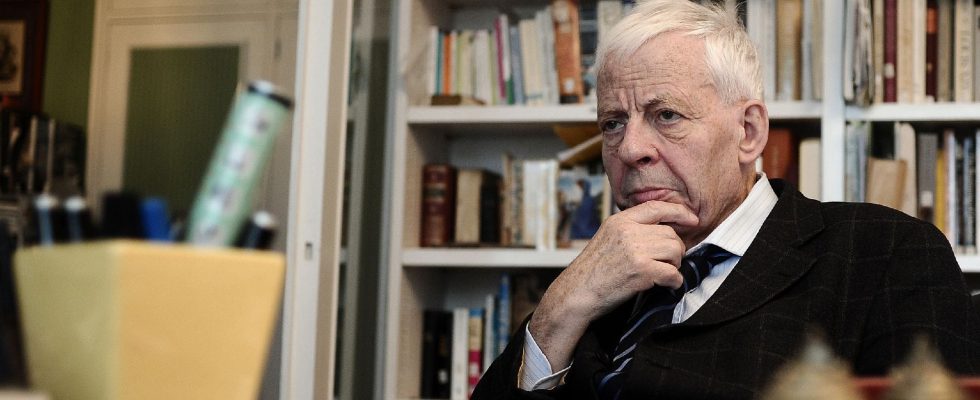The town of Montaillou, in Ariège, has only around fifteen inhabitants. But thanks to Emmanuel Le Roy Ladurie, “a pioneer in the history of mentalities”, as the Belgian newspaper points out From Standard, she is world famous. The obituary sections of the major newspapers salute the crucial contribution to the human sciences of the French historian, who died on November 22 at the age of 94.
In the spanish daily El Paíshis colleague Javier Moscoso pays tribute to him and praises the stunning approach of his best-seller with the austere title, Montaillou, Occitan village from 1294 to 1324 (Gallimard, 1975), “which opened the way to a way of doing history which, through anthropology and ethnography, sought to reconstruct the daily life of insignificant beings of the past”. “Here, there were neither kings nor prelates, but poor shepherds, priests and villagers,” he emphasizes.
Roy Ladurie was one of the last eminent representatives of the Annales school, which rejected traditional historiography centered on major events and their famous actors. This movement “extended its influence throughout Western Europe and the United States, even among historians who did not formally identify with it”, specifies the New York Times.
Foreign newspapers also recall his political career: from a conservative family, he was a student when he joined the Communist Party, which he left after the Soviet invasion of Hungary in 1956, before moving closer to the socialists then to the liberal right. “He knew the Inquisition like few others and knew how to immediately recognize the intolerant mentality,” underlines Antonio Carioti in the Corriere della Serra.
The Italian historian, in the pages of the Milanese newspaper, also recalls how Le Roy Ladurie “distinguished himself in the history of climate, long before it became fashionable”. And that he did not hesitate to put his authoritative voice in the fight against global warming.
